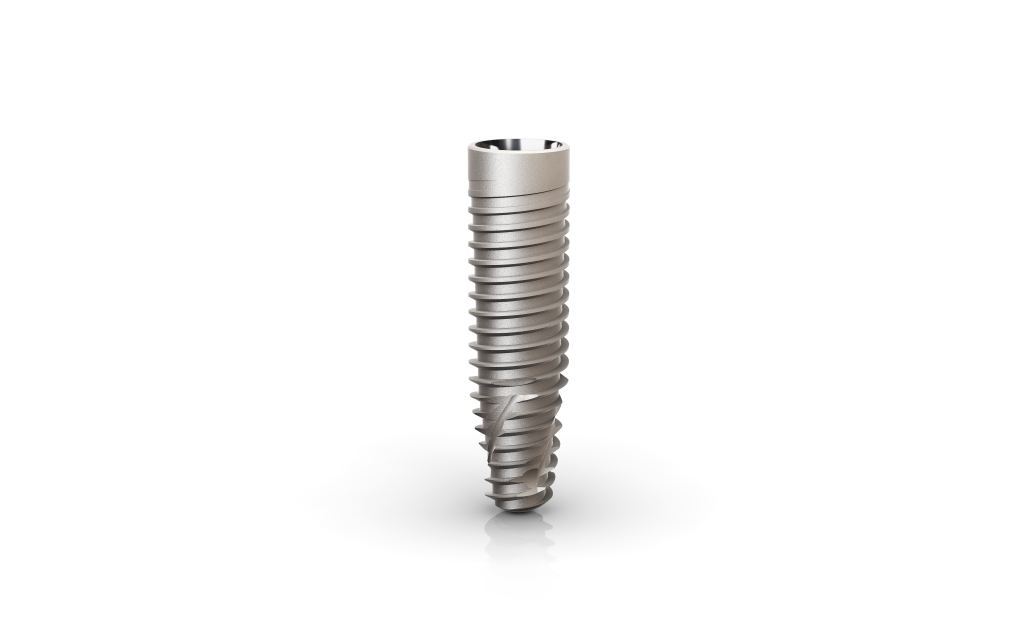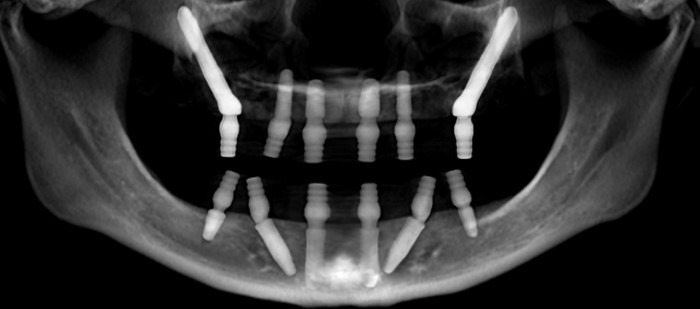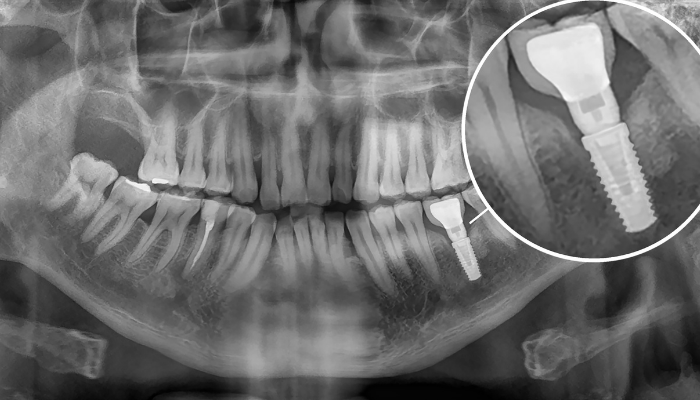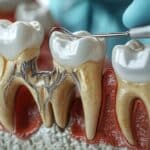Bone requires frequent stimulation to uphold its structure and density. Bone in the jaw usually receives its greatest stimulation through the pressure placed on the root of a tooth during chewing. But when a tooth is no longer present, the underlying bone lacks stimulant and will lose its structure and density over time. If the missing tooth is replaced with a dental implant, however, the surrounding bone will maintain its strength and form. But how does a dental implant stay in place? The answer is in the bone’s natural fusion process.

Osseointegration: The Fusion Process
Dental implants are manufactured with grooves, much like you’d find on a screw in a hardware store. Initially, these grooves help the implants embed themselves into the bone, but this isn’t the key to their long-term stability. Dental implants are generally made of titanium- a metal that human bone naturally forms a relationship with. After placement, the remaining dental bone slowly bonds itself with the titanium, just as it does with the root of a natural tooth. This fusion process is known as “osseointegration.” This natural process requires a three to six month healing period with minimal stimulation to the healing implant. The outcome is the dental implant becoming one with the jawbone and functioning similarly to a natural tooth.
Can Implants Come Loose During the Healing Process?
When properly placed and cared for, it’s very rare for a dental implant to fail during the healing process. Dental implants in general have a 98% success rate to properly fuse with the bone. After this process has matured, and if proper dental hygiene is maintained, the implant should last a lifetime.
What to avoid during the healing process:
1. Applying too much pressure to the implant: Too much, continued pressure to a healing implant could cause it to shift or come loose. Dental implant recipients are usually most vulnerable to this pressure when chewing tough foods during the healing period. For this reason, oral surgeons will place their patients on a soft diet during the healing process. In the case of full mouth implants, the risk is lessened, as any pressure applied to the prosthetic teeth is distributed through the entire prosthesis and between the different implants. Single implants are at a greater risk while chewing tough foods because the force of the bite on the food could potentially apply directly to a single tooth. Many surgeons usually will not place a crown on a single implant until the healing process is finished, to allow the implant to be undisturbed by chewing force.
2. Smoking: To ensure the success and longevity of your implant treatment, it is recommended that you quit smoking.
What If I’ve Already Lost a Lot of Bone?
If a tooth has been removed or missing for a few months, the underlying bone has likely begun to resorb. An implant cannot be placed in a socket that has experienced too much bone loss.
For the replacement of a single tooth, the underlying bone must first be rebuilt through a bone grafting process. The oral surgeon will place bone graft material in the socket and suture the overlying gums. The bone graft will need a few months to heal before the implant can be placed.
For a full-mouth procedure, bone grafting is not necessary. Usually, only four to six implants need to be placed on each jaw, meaning the surgeon only needs four to six pockets of sufficiently dense bone to successfully place a full arch of implant-supported teeth. The lower jaw is thick enough that implants can usually be placed even in cases of advanced bone loss. If a patient has severe bone loss in their upper jaw, our surgeons can place zygomatic implants that embed in the zygoma (cheekbone) to provide sufficient support.

In conclusion, as long you maintain proper hygiene, you have no need to worry about dental implant failure. Your implants are here to stay! Board-certified oral surgeons are trained to provide you with the best possible implant treatment so that you have teeth for a lifetime. After your 6-month healing period, you’ll be free to enjoy all the foods you love without worry of implant-related problems.









